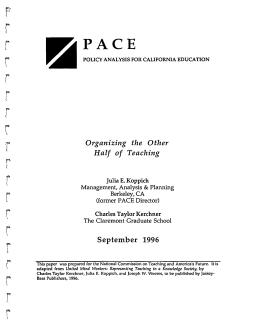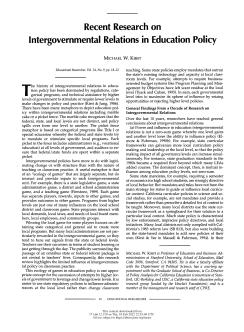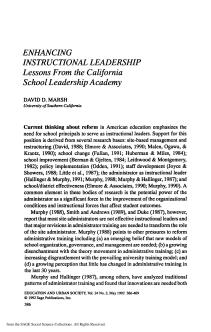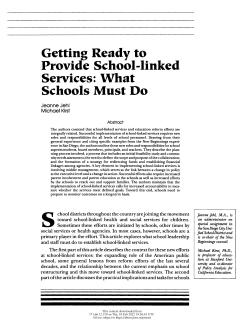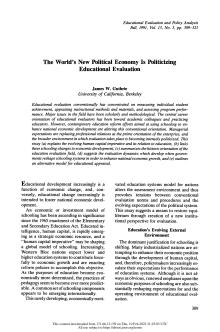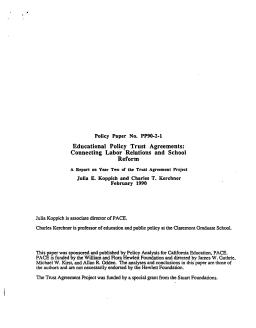Published
Summary
The 1975 Rodda Act, also known as the Education Employment Relations Act, allowed California public school teachers to collectively bargain for employment terms. Similar laws exist in 37 states based on the National Labor Relations Act. This paper advocates for transforming education labor relations to position teachers and unions as leaders in creating a 21st century education institution. The authors hope to inform discussions on improving education quality for California's 5.2 million public school students.
Published
Summary
Intergovernmental relations in education policy are dominated by regulations, programs, and technical assistance. A metaphor called "ecology of games" captures how each level of government maximizes its influence, affecting state and local policy-making. Classroom practice is limitedly influenced by intergovernmental policy, as local demands, taxes, and needs also play a role. State policies are easier to influence administrators than to change teaching. Each level of government tries to maximize its sphere of influence.
Lessons from the California School Leadership Academy
Published
Summary
American education reform stresses the importance of principals as instructional leaders, but most are not effective in this role. Research suggests that innovative administrator training is needed to transform the role of site administrators. Content and process criteria have been identified, and several state-sponsored training programs have been established to meet them. One such program is the California School Leadership Academy, which provides a three-year program for aspiring and practicing site administrators with an emphasis on instructional leadership.
What Schools Must Do
Published
Summary
This article contends that school-linked services and education reform efforts are integrally related. Successful implementation of school-linked services requires new roles and responsibilities for all levels of school personnel. Drawing on general experience and citing specific examples from the New Beginnings experience in San Diego, the article outlines these new roles and responsibilities for school superintendents, board members, principals, and teachers. It describes the planning process involved, a process that includes an initial feasibility study and community needs assessment; a...
Published
Summary
Traditionally, educational evaluation has focused on measuring student achievement and program performance. However, education reforms are now linking schooling to economic development, leading to a shift towards managerial expectations and politicization of the field. This article explains the human capital imperative and its relation to education, summarizes the history of educational evaluation, and outlines an alternative model for educational appraisal in the context of government-led education system reforms aimed at enhancing national economic growth.
Connecting Labor Relations and School Reform: A Report on Year Two of the Trust Agreement Project
Published
Summary
The Trust Agreement Project, initiated in September 1987, is a joint effort of 12 California school districts and their teachers' unions. It enables teachers and school management to develop agreements on professional issues beyond the traditional scope of collective bargaining. The agreements cover topics like teacher evaluation and curriculum development, and aim to enhance educational capacity by promoting collective responsibility for educational processes and outcomes. The project appears to be altering decision-making processes and encouraging collaboration between unions and management.
